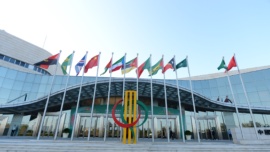A recent article in Ponto Final, the Portuguese daily newspaper, spotlights the contacts between Macau authorities and security companies in the acquisition of equipment enabling the police to invade our daily communications through nefarious forms. In the ever-evolving world of technology, it seems that Macau authorities dont want to be left behind and the target now, in the pursuit of potential crime, is our private chats. Im against all types of invasion. And not only myself. The legislators who structured the Criminal Procedure Code still in force, at least on paper, in Macau, are also against it. The code only authorises tapping in very specific situations: when there is an investigation of crimes with a maximum limit of over three years imprisonment or drug trafficking crimes, or prohibited guns, or smuggling crimes, or libel, threat, and invasion of private life, when committed through the telephone. We may concede that in 1996, when the Criminal Procedure Code was approved, communications were not as they are today and that the interpretation of telephone can be wider in our time. This notwithstanding, tapping is a restricted activity that cannot be used because on certain days the wind is blowing stronger than the day before if the agent wants to know what his wife was talking about with friends. In our point of view, the examples emanating from the National Security Agency and the information we got from Wikileaks seem to not be sufficient for our authorities to understand that life – free life – is one of the best gifts of the human race. When everybody hears and reads each others text messages, the freedom is immediately restricted. Do we want this? Or, ultimately, are we prepared for this? The idea of public powers is to protect a states citizens. The forecast now is to invade our day-to-day dealings, hopefully with decent criteria. Since I was a kid, my father told me to always step into the shoes of my counterparts before adopting any option. It would be advisable if our governors were citizens just for one day and figure out a situation where Big Brother would check e-mails, Skype conversations, whatsapps, wechat, etc. Im sure they would not like to have their private life minutely scrutinised by any authority. Theres a danger of our future life being remote-controlled by an agency that knows when we go to the toilet or when we had a meal or when we had a secret affair. Information is power. But the mis-use of information acquired through invasion of our private behaviour should be criminalized, not enhanced. Some predict that newborns will be delivered into this life with a chip similar to those already used in pets. I certainly dont want such a life. Do you?
Top Stories
RELATED ARTICLESMORE FROM AUTHOR
Enhancing Macau’s Role as a Bridge between China and Portuguese-speaking Countries for Building a Community...
By Liu Xianfa, Commissioner of the Ministry of Foreign Affairs of the People’s Republic of...
OPINION – Enhancing Tourist Experience and Protection: Recommendations for the Historic Centre of Macau
Macau, as a travel destination, is world-renowned for its vibrant entertainment gambling, rich cultural heritage,...
OPINION – The Influence of Many, the Power of One
In January of this year, I reached out to my Corporate Social Responsibility expert colleagues...
OPINION – Blue natural assets
The sea seems cheap. Water does not have to be built (like railways) or repaired...























